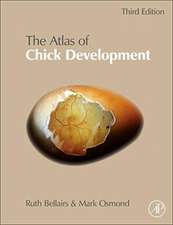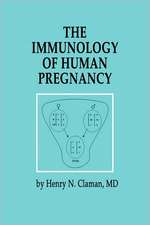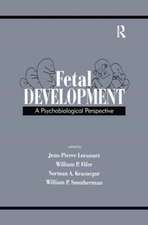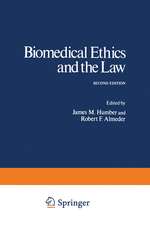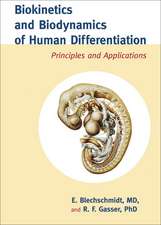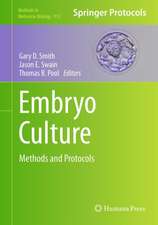Stem Cell Research: Biomedical Ethics Reviews
Editat de James M. Humber, Robert F. Almederen Limba Engleză Hardback – 20 oct 2003
| Toate formatele și edițiile | Preț | Express |
|---|---|---|
| Paperback (1) | 686.83 lei 6-8 săpt. | |
| Humana Press Inc. – 19 noi 2010 | 686.83 lei 6-8 săpt. | |
| Hardback (1) | 643.16 lei 6-8 săpt. | |
| Humana Press Inc. – 20 oct 2003 | 643.16 lei 6-8 săpt. |
Din seria Biomedical Ethics Reviews
-
 Preț: 389.11 lei
Preț: 389.11 lei -
 Preț: 388.13 lei
Preț: 388.13 lei - 15%
 Preț: 640.71 lei
Preț: 640.71 lei -
 Preț: 393.13 lei
Preț: 393.13 lei - 15%
 Preț: 643.65 lei
Preț: 643.65 lei -
 Preț: 386.61 lei
Preț: 386.61 lei - 15%
 Preț: 642.03 lei
Preț: 642.03 lei - 15%
 Preț: 650.69 lei
Preț: 650.69 lei -
 Preț: 388.90 lei
Preț: 388.90 lei -
 Preț: 395.47 lei
Preț: 395.47 lei -
 Preț: 386.81 lei
Preț: 386.81 lei -
 Preț: 382.75 lei
Preț: 382.75 lei -
 Preț: 388.13 lei
Preț: 388.13 lei -
 Preț: 383.93 lei
Preț: 383.93 lei -
 Preț: 382.57 lei
Preț: 382.57 lei -
 Preț: 382.57 lei
Preț: 382.57 lei - 15%
 Preț: 645.79 lei
Preț: 645.79 lei -
 Preț: 393.52 lei
Preț: 393.52 lei - 5%
 Preț: 719.74 lei
Preț: 719.74 lei - 15%
 Preț: 641.85 lei
Preț: 641.85 lei - 15%
 Preț: 644.49 lei
Preț: 644.49 lei
Preț: 643.16 lei
Preț vechi: 756.65 lei
-15% Nou
Puncte Express: 965
Preț estimativ în valută:
123.07€ • 128.49$ • 101.85£
123.07€ • 128.49$ • 101.85£
Carte tipărită la comandă
Livrare economică 04-18 aprilie
Preluare comenzi: 021 569.72.76
Specificații
ISBN-13: 9781588294012
ISBN-10: 1588294013
Pagini: 183
Ilustrații: XI, 183 p.
Dimensiuni: 155 x 235 x 20 mm
Greutate: 0.49 kg
Ediția:2004
Editura: Humana Press Inc.
Colecția Humana
Seria Biomedical Ethics Reviews
Locul publicării:Totowa, NJ, United States
ISBN-10: 1588294013
Pagini: 183
Ilustrații: XI, 183 p.
Dimensiuni: 155 x 235 x 20 mm
Greutate: 0.49 kg
Ediția:2004
Editura: Humana Press Inc.
Colecția Humana
Seria Biomedical Ethics Reviews
Locul publicării:Totowa, NJ, United States
Public țintă
Professional/practitionerCuprins
An Analogical Argument for Stem Cell Research.- Marginal Cases and the Moral Status of Embryos.- Fixations on the Moral Status of the Embryo.- Nazi Experiments and Stem Cell Research.- Recent Ethical Controversies About Stem Cell Research.- Complicity in Embryonic and Fetal Stem Cell Research and Applications: Exploring and Extending Catholic Responses.- Women, Commodification, and Embryonic Stem Cell Research.
Recenzii
"...offers an up to date presentation of some of the issues surrounding the use of human stem cells in research." - Bull. Med. Eth.
Textul de pe ultima copertă
Stem cell research holds high promise of providing powerful new treatments for a number of debilitating diseases, even while it raises for some-as a form of human experimentation-a number of difficult moral problems. In Stem Cell Research, a well-seasoned panel of philosophers, ethicists, feminists, and historians examine these moral issues and introduce the principal arguments for and against such research. Among difficult issues considered are these: What reason (or reasons) are there for believing that human embryonic stem cells should (or should not) be accorded the protections ordinarily extended to full members of the human moral community? Would it be wrong to experiment with stem cells taken from human embryos, knowing that such experimentation would lead to the destruction of the embryos, even if they were about to be destroyed and discarded? Does the current use of human embryonic stem cells in research devalue humanity by treating these materials as mere "commodities"? Finally, are the current regulations on stem cell research unjust because they alienate women from their reproductive labor?
Broad in scope and objective in its coverage, Stem Cell Research offers both a balanced presentation and thoughtful critiques of the main arguments in the debate, allowing readers to reach their own conclusions on all the key moral issues associated with today's stem cell research.
Broad in scope and objective in its coverage, Stem Cell Research offers both a balanced presentation and thoughtful critiques of the main arguments in the debate, allowing readers to reach their own conclusions on all the key moral issues associated with today's stem cell research.

